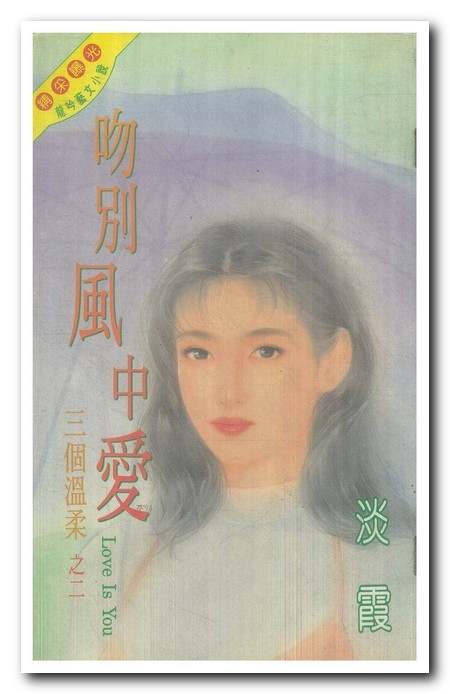the days of my life-第58章
按键盘上方向键 ← 或 → 可快速上下翻页,按键盘上的 Enter 键可回到本书目录页,按键盘上方向键 ↑ 可回到本页顶部!
————未阅读完?加入书签已便下次继续阅读!
e day I hope that he will appear again and greet me in his quiet fashion as though we had parted but yesterday — I mean; of course; on this bank of the great “Divide。”
Chapter 18 RURAL ENGLAND
H。 R。 H。 returns to the country — Devotes himself to agriculture — “Farmer’s Year” — Arthur Young — Bradfield bust — Bobbin — Determines to follow Arthur Young’s example — Agreed with Daily Express for series of articles on Rural England — Visit to Cyprus and Holy Land — A Winter Pilgrimage — Rural England journeys — Heaviest labour of H。 R。 H。‘s life — Arthur Cochrane’s help — Hundreds of interviews — Practical results disappointing — Mr。 R。 W。 Hanbury — Agricultural Post — Lord Onslow — Mrs。 Asquith。
My town excitement over I returned to the country and the writing of books。 Oddly enough; I found that the thorough change of thought seemed to have rested my mind; with the result that my imagination was fresher than it had been for some years before。 Also the work itself was and has remained less irksome to me than during the years 1891 to 1895。 Still the desire haunted me to do something in my day more practical than the mere invention of romance upon romance。 By degrees it came home to me that a great subject lay to my hand; that of the state of English agriculture and of our rural population; also of all the questions thereto pertaining。
So forcefully did it e home that I grew to think and indeed to believe that I was appointed to serve my own; and perhaps other countries; by following up this neglected branch of research which to many has seemed so useless and so dull。 Therefore with a bold heart I gave all my spare time and energy to a study of the matter。
First I wrote the book that is called “A Farmer’s Year;” with the twofold purpose of setting down the struggles of those who were engaged in agriculture during that trying time; and of preserving for the benefit of future generations; if these should care to read of them; a record of the circumstances of their lives and of the condition of their industry in England in the year 1898。 In its way this book; which was first published serially in Longman’s Magazine — now; alas! defunct; like most of the good magazines of my early days — proved extraordinarily successful。 It ost without exception; with great favour。 Also the letters that poured in upon me concerning it were almost without number; they still continue to arrive。 But; pared with my romances; it brought me in but a small amount of money。 For this there were several reasons。 It was published at too low a price — 7s。 6d。 — whereby Charles Longman and I hoped to put it within the reach of all; also the charming illustrations by my friend Mr。 Leon Little; of which I have the originals in this house; involved a good deal of expenditure。
The chief reason; however; is very simple。 The British public as a whole is a nation of town dwellers and not rural in its tastes。 It wants novels to read; not works that deal with agriculture in however interesting a fashion。 He who treats of such subjects must do so at his own cost and be content to take his pay in honour and glory。 Well; as I never expected anything else; I was not disappointed in this lack of financial results。 My objects were; as I have said; quite different。 I set them out so clearly in the little preface which I wrote some years later for the “Silver Library” Edition of the work; that I will venture to quote it here:
In Ancient Egypt the gentleman farmers of the Fifth and Sixth Dynasties whilst yet alive caused their future sepulchres to be adorned with representations of such scenes of daily life and husbandry as to them were most pleasant and familiar。
The study of these paintings and reliefs has delighted me much today; as it did when first I visited them in 1887。 Whilst considering them it occurred to me that in this book; by means of the methods of my own age; I have unconsciously attempted to follow the example of the authors of these rock…hewn manuscripts who lived some fifty centuries ago。
Perhaps; I thought to myself; in times to be; when all is changed again save the eternal ways of Nature that are the ways of God; the word…pictures of my pages also may thus interest and instruct unborn men of tastes akin to mine。
Such is my hope。
It would please me to write another “Farmer’s Year” arranged upon a similar plan; setting forth my further agricultural experiences throughout an entire year; now that I farm on a larger scale and more scientifically than I did; especially in the matter of milk…production。 I greatly doubt; however; whether at my age and with so much work in front of me; I shall ever find the opportunity; especially as the production of such a book involves constant residence on one spot from January to December。
I followed up “A Farmer’s Year” by reading a paper on the Rural Exodus before the Norfolk Chamber of Agriculture on May 6; 1899; which is printed at the end of that volume; and moving the following Resolution that; after discussion; was carried unanimously:
This Chamber respectfully calls the attention of Her Majesty’s Government to the continued and progressive shrinkage of the rural population in the Eastern Counties; and especially of those adult members of it who are described as skilled agricultural labourers。
In view of the grave and obvious national consequences which must result if this exodus continues; the Chamber prays that Her Majesty’s Government will as soon as may be convenient make its causes the subject of Parliamentary inquiry and report with a view to their mitigation or removal。
On May 30th in the same year I moved a similar Resolution before the Central and Associated Chambers of Agriculture in London where; after criticism and discussion; it was also unanimously carried。
In January 1900 I went with my family to Florence; where we stayed with my sister…inlaw; Mrs。 John Haggard; whose husband was at that time Consul in Noumea; whither he could not take his children。 It was the year of the Boer War; and a melancholy business I found it to spell out the tale of our disasters in the Italian papers。 The Times had asked me if I would care to go to South Africa as one of their war correspondents; but this did not strike me as an attractive business at my age。 However; I entered into another arrangement with Mr。 Arthur Pearson; the owner of the group of papers of which the Daily Express is the principal。 This was that; on the conclusion of the war; I should write a series of articles under the title of “The New South Africa;” which would; of course; have involved a long journey in that country。 This engagement was never fulfilled; for the reason that the war carried on for another two years or so; before which time the British public was utterly weary of the subject of South Africa。 Upon this ground Pearson suggested that the contract should be cancelled。
In the meantime; however; while I was taking my bath one morning — a domestic occasion on which; for some reason unexplained; I have observed that I am more open to new impressions than at any other time — an idea struck me。 It was to the effect that I should like to emulate Arthur Young; who more than a century before had travelled through and written of the state of agriculture in the majority of the English counties。 Second thoughts showed me that the enterprise was very vast。 It had taken Arthur Young about thirty years; if I remember right; not to plete it — for this neither he nor any one else ever did — but to deal with about twenty…six counties; travelling leisurely on horseback and for the most part; I think; as an official of what in those days answered to the present Board of Agriculture。
I may add that about a year ago I paid a visit to Arthur Young’s home; Bradfield bust; more monly called Burnt Bradfield; near Bury St。 Edmunds; which was then for sale。 The house; of course; is rebuilt; but all the rest — park; ancient oaks; and little lake — remain much as they were in his day; a hundred years ago。
Readers of his Life will remember how he instructed his delicate daughter — who afterwards died; poor child — to walk in certain places; such as in the Round Garden or on the flagged path where it was dry — “the little garden where I have so many times seen her happy。”
There they are to this day; and; standing among them alone; I could almost re…create the figure of pale little Bobbin as she obeyed the orders sent from France in her father’s letters。 There; too; is the great avenue of limes which were; I believe; planted by Mr。 Arthur Young; running from the house across the timbered grounds to the highway by the church。 Here in the churchyard lie the mortal remains of this great man; for; when his prescience and his patient industry are taken into account; I think he may be fairly described as great。 In the church; actually underneath his pew; is buried his sweet Bobbin; and on a tablet in an annexe appears a touching memorial inscription to her; which I regret I had no time to copy。 It does not; I think; appear in the Life by Miss Betham Edwards。
How sadly read his words written at Bradfield in the year 1800:
I never e to this place without reaping all the pleasure which any place can give me now。 It is beautiful and healthy; and is endeared to me by so many recollections; melancholy ones now; alas! that I feel more here than anywhere else。 Here have I lived from my infancy; here my dear mother breathed her last; here was all I knew of a sister; and the church contains the remains of my father; mother; and ever beloved child! Here; under my window; her little garden — the shrubs and flowers she planted — the willow on the island; her room; her books; her papers。 There have I prayed to the Almighty that I might join her in the next world。
Well; his sorrows are done and; had she lived the full life of woman; by now Bobbin’s days would have been counted out twice over。 Let us trust that long ago her broken…hearted father’s petition has been granted; and that this pathetic pair once more walk hand in hand in some celestial garden; never to be parted more。
If I may venture to pare myself with such a man; there is a considerable similarity between our aims and circumstances。 We have both been animated by an overwhelming sense of the vital importance of British agriculture to this country and its citizens。 We are both East Anglians and born of the class of landed gentry or “squires。” We have both been official servants of the State。 We have both written novels and much connected with the land。 We were both practical farmers; which many who write on such things are not; and in the same counties。 We were both tall; thin; with pronounced features; and possessed a nervous temperament and somewhat similar powers of observation。 We both suffered a terrible loss that saddened our lives; though happily for him the blow fell in his later days。 Both of us have been animated by the same hopes。
Such are some of the resemblances; and I dare say others could be found; for instance; if Young wrote of rural France; I have written of rural Denmark。 Only I am thankful to say I have been spared his domestic separations; as I hope I shall be spared his blindness and the religious mania; or something approaching it; that darkened his last years。
To return; in the end I determined to cling to my inspiration and to follow old Arthur Young’s example; if in any way I could manage to do so。
My chance came in connection with this South African agreement。 In answer to Pearson’s suggestion that it should be cancelled; I requested my agents; Messrs。 A。 P。 Watt & Sons; to inform him that I was prepared to agree; on the condition that; in place of it; he would substitute another — namely; that the articles should deal with rural England。 Otherwise I would proceed to South Africa; as I had made all my plans to do。 Pearson considered and; in the end; assented。 I do not know that he was particularly anxious to exploit rural England in the columns of the Daily Express; but at any rate it was a fresh cry; whereas that of South Africa had bee very stale indeed。
Before speaking of this matter; however; which only matured in the beginnings of 1901; I will return for a moment to my travels which menced at Florence。 I had arranged verbally with Moberly Bell of The Times to visit Cyprus and the Holy Land; and to write for that journal some articles upon the affairs of the Near East。 I did visit Cyprus and the Holy Land; but the articles were never written。 For this reason: I took with me a nephew; now a respected lawyer verging on middle age and; I may say; a relative for whom I have the greatest regard and the warmest affection; who was to act as my secretary。 But if ever his eye should fall upon these lines I hope he will not be offended if I add that then; in the heyday of his very fascinating and festive youth; he proved the most erratic secretary with whom I have ever e in contact。 I could never find him when I wanted him; and as for the heavy typewriter which we dragged about with us; all he did with it was to drop it on my toes out of the rack of a railway train。 At last I got sick of the article; which alone clung to us after he had lost all the luggage on the Italian railways; causing us to proceed to Cyprus with practically nothing but the clo





